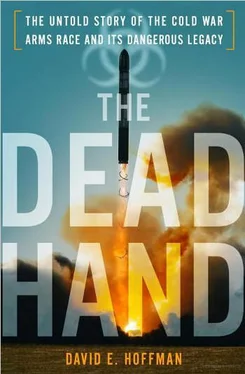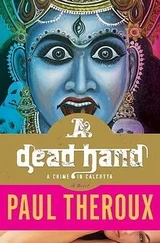Hanssen then described a sensitive intelligence collection technique used by the United States. He told the Soviets that he would be in touch. He didn’t sign the letter. On October 15, Degtyar received in the mail, at his home, a package from Hanssen containing a large number of classified documents. The next morning, Degtyar was seen by FBI agents carrying into the Soviet Embassy a large black canvas bag that he did not usually carry. About ten days later, Degtyar received another letter from the agent, whom the KGB was calling “B,” in an envelope postmarked New York City. This letter proposed a dead drop site under a wooden footbridge in Nottoway Park in northern Virginia, near where Hanssen had earlier lived. On Saturday, November 2, the KGB put $50,000 for Hanssen under the bridge. 28
The CIA moved Yurchenko to a new, larger safe house on a piece of wooded lakefront near Fredericksburg, Virginia. But Yurchenko was increasingly disillusioned. Word of his defection had leaked to the press, even though he asked the CIA to keep it secret. And his hopes to be reunited with a Russian woman he had known years earlier were dashed. 29When he defected in August, Yurchenko thought he might have been suffering from stomach cancer, although later tests in the United States showed he was not. On November 2, while at Au Pied de Cochon, a restaurant in Georgetown, Yurchenko simply walked away from his inexperienced CIA handler. When the CIA man realized what had happened, the agency and the FBI launched a manhunt all over Georgetown. They didn’t find Yurchenko. On Monday, November 3, he showed up at the Soviet Embassy, where he held a strange press conference in which he claimed he had been abducted in Rome, drugged and held against his will. “Something smells fishy,” Reagan observed in his diary on November 4.
Yurchenko boarded a flight back to Moscow on November 6. His defection and return have long been one of the unsolved puzzles of the Cold War. Was he a deliberate plant by the KGB? For what purpose? Or did he just grow disillusioned with his treatment by the CIA? The truth is unknown. His return to Moscow brought with it one grim footnote. On the plane escorting Yurchenko home was KGB agent Valery Martynov, the officer in the Soviet Embassy working on Line X, stealing Western technology. Both Ames and Hanssen had, by this time, identified Martynov as a spy for the United States. Martynov was arrested the day he arrived in Moscow, and later executed.
American intelligence operations in the Soviet Union were collapsing, but the CIA was not aware of the enormous damage it had suffered in 1985. Ames and Hanssen had only just begun their espionage, which went on for years. Later investigations showed how severely the American intelligence operations in Moscow had been compromised. Gates said that Howard was the “CIA’s most devastating counterintelligence setback up to that point,” and “many of our Soviet operations were compromised and either rolled up by the KGB or shut down by us.” According to a damage assessment by the CIA, nine of the agents whom Ames identified on June 13 were executed. The Senate Select Committee on Intelligence later found that more than twenty operations were compromised, a “virtual collapse of the CIA’s Soviet operations.” John Deutch, the CIA director, told Congress that Ames not only caused the execution of agents who worked for the United States but “made it much more difficult to understand what was going on in the Soviet Union at a crucial time in its history.”
The year of the spy, as 1985 became known, blinded American intelligence operations against the Soviet Union just as Gorbachev was coming to power. Reagan simply did not have the assets to help him understand what was happening behind the Kremlin walls. In the end, there were more powerful agents of change than the agents of espionage. Those forces—rooted in Gorbachev’s convictions about what his country needed, in the overpowering burden of the arms race, in Reagan’s desire to eliminate nuclear weapons—were about to unleash a momentous revolution.
————— 10 —————
OF SWORDS AND SHIELDS
In his early days in office in the spring of 1985, Gorbachev worked feverishly. Vladimir Medvedev, the Kremlin security director who had served since Brezhnev, watched in amazement. “After Brezhnev’s many years of illness and lethargy,” he recalled, “there was suddenly a volcano of energy near you.” Gorbachev worked until 1 or 2 A.M. and got up the next morning at 7 A.M. He was on his way to the Kremlin at 9:15 in the ZIL limousine. Gorbachev sat in the backseat, closing the glass sliding partition behind Medvedev and the driver, making notes, and placing calls on the two phones in the car. “Over this short period of time he managed to talk to 3 or 4 people,” Medvedev recalled. “Walking from the car to the office, he gave several orders, advice, promises—not a moment to catch his breath. Still walking, he gave concrete advice to the military, to civilians—whom to talk to, what to say, what to pay attention to, what to insist on, what to ignore. He spoke in short, precise sentences.” 1
Gorbachev sent a shock wave of excitement through a moribund society. At a time when people were accustomed to flowery but empty official pronouncements, when portraits of leaders were dutifully hung from every wall, when conformity suffocated public discussion, Gorbachev’s style was refreshingly direct. 2Often he talked too much, wavered on important decisions and was slow to break out of the old Soviet mind-set. Yet the absolute core of his early drive was to halt the decay in Soviet living standards and rejuvenate society. He believed that open discussion was essential to the survival of socialism. He didn’t fear what people had to say. He believed in Lenin’s ideals, but concluded that leaders after Lenin had gone off track, and he wanted to set things right. It would have been so much easier to fall back into the old habits, to take the well-worn old pathways, but Gorbachev did not.
On a visit to Leningrad in May, he bantered with a large, jostling crowd on the street. It was an extraordinary sight to see a Soviet leader talking spontaneously with people. “I’m listening to you,” he told them. “What do you want to say?”
Someone shouted back, “Continue as you began!”
A woman’s voice broke in, “Just get close to the people, and we’ll not let you down.” Gorbachev, hemmed in tightly, responded with a smile. “Can I be any closer?” The crowd loved it.
In a combative speech to Leningrad Communists at Smolny Institute on the same visit, Gorbachev spoke largely without notes, insisting that the economy be reenergized, demanding that people who could not accept change must step aside. “Get out of the way. Don’t be a hindrance,” he declared. 3Gorbachev was skilled at manipulating the elders of the Politburo; he didn’t tell them in advance about the speech, in which he spilled out some of their closed deliberations in March and April. He was thrilled with the enthusiastic response, and took a video home from Leningrad. The following weekend he watched it with his family at the dacha. Then he ordered it to be shown on national television. 4Crowds lined up to get a pamphlet of the text at newsstands. Anatoly Chernyaev, the deputy chief of the International Department of the Central Committee, who played a key role in the great Gorbachev drama, recalled that in the past such texts would lie on the floor of the newsstands until the leader died. “The people are flabbergasted at the TV coverage of Gorbachev’s meetings and speeches in Leningrad,” Chernyaev wrote. “The question of the day is: Did you see it? At last we have a leader who knows what he is doing and enjoys it, who can relate to the people, speak in his own words, who doesn’t avoid contact and doesn’t worry about appearing magisterial. He really wants to get our wheels out of the rut, wake the people up, get them to be themselves, to use their common sense, to think and act.” 5
Читать дальше












